"The gastric wall is too thick; it's untreatable!" Maxut (a pseudonym) from Kazakhstan was diagnosed with stomach cancer but couldn't receive effective treatment at local hospital due to high risks of death. Consequently, he was sent home.
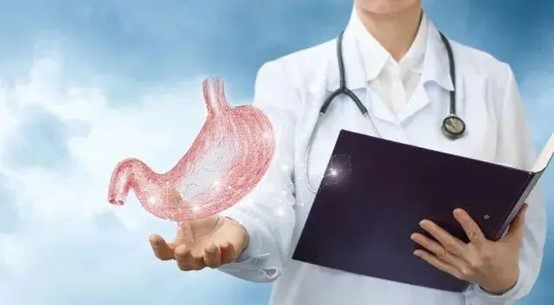
Arrival in Guangzhou, Finding Hope
In October 2023, Maxut went to a local hospital due to persistent stomach pain. An endoscopy revealed thickened stomach walls, and a biopsy indicated stomach cancer. Additionally, he faced stomach bleeding, ulcers, and multiple liver nodules, leading to high risks, difficult treatment, and a short survival period, which frightened him. In just 40 days, the physical and mental torture caused him to lose 20 pounds. However, his family refused to give up and searched online for a "lifeline." Eventually, Fuda Cancer Hospital in Guangzhou, China was in their sight.
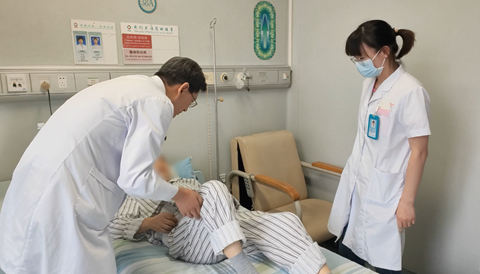
Maxut and his family took several flights, bringing past medical records to Fuda's second medical department. The attentive reception service, friendly medical staff, and warm companionship of the translators gradually eased his mind. When they heard that "treatment is possible," the family saw a glimmer of hope, although they were still anxious due to many unknown factors. Treatments like interventional chemotherapy, immunotherapy, and cryoablation, unheard of in Kazakhstan, raised questions about their maturity, effectiveness, and potential side effects.
Combined Treatment: A Mixture of Surprise and Joy
Maxut’s strong desire to live made him decide to "give it a try." After completing necessary tests and thoroughly understanding the medical techniques from doctors, Maxut underwent multiple sessions of interventional chemotherapy combined with immunotherapy to control the lesions in his stomach, hepatic portal area, retroperitoneum, and mesentery. The doctors also used cryoablation to locally inactivate liver metastases, creating more favorable conditions for subsequent treatments.
Stomach cancer with liver metastasis is often multifocal, accompanied by distant lymph node metastasis, abdominal dissemination, and other organ metastases. Single therapy rarely achieves good results, so combined treatments are common. The primary tumor of stomach cancer is sensitive to chemotherapy. Through interventional infusion chemotherapy, chemotherapeutic drugs are infused into the tumor-feeding arteries, increasing drug concentration in the tumor area to enhance efficacy and reduce adverse reactions.
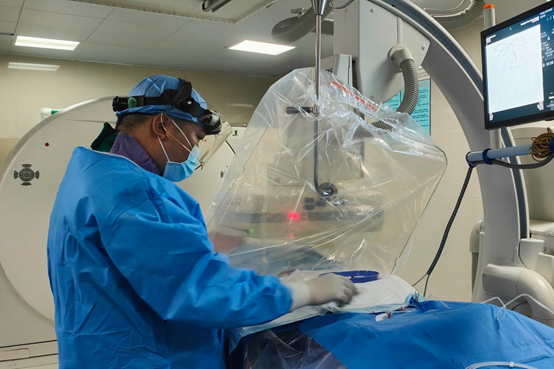
During treatment, immunotherapy drugs were also used to activate and enhance Maxut's immune system, improving its ability to recognize and eliminate cancer cells. Cryoablation involved using a needle to form an ice ball at the tip, rapidly lowering the temperature to -140°C to -190°C, and then reheating, causing tumor cells to dehydrate and rupture, leading to tumor necrosis.
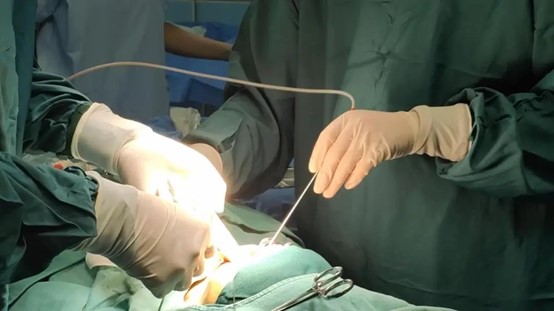
Two weeks after the first treatment, a follow-up CT scan showed reduced stomach wall thickness, smaller liver metastases, and smaller enlarged lymph nodes around the stomach. These results surprised and delighted Maxut and his family. They were amazed by the effectiveness and mild side effects and were pleased that the disease was under control, knowing that their decision was right. Currently, Maxut is recovering well and continues with chemotherapy and immunotherapy.
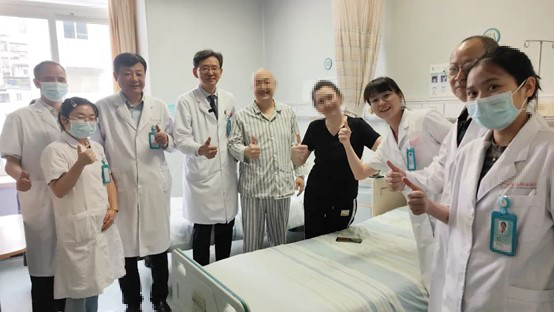
Dietary Habits That Trigger Stomach Cancer
During conversations, Maxut mentioned that his stomach cancer might be related to his dietary habits. Kazakhstan has a high incidence of stomach cancer, which is linked to its traditional meat-based dishes that are hard to digest and a lack of fresh vegetable intake. Moreover, excessive alcohol consumption, irregular eating habits (binge eating, irregular meals), frequently eating leftovers, and a preference for pickled foods (sausages, cured meats, salted fish) can all increase the risk of stomach cancer.
Not all stomach diseases progress to stomach cancer. The transformation from stomach disease to cancer is complex, involving multiple factors, and may take years, decades, or never occur, depending on lifestyle and timely treatment. However, some stomach diseases, especially chronic gastritis, atrophic gastritis, and stomach ulcers, can increase the risk of developing stomach cancer.
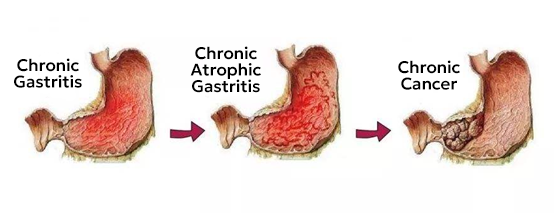
If one experiences prolonged stomach pain, bloating, or gastritis or ulcers without intervention, the damage to the stomach lining remains unhealed, leading to recurrent stomach issues, which could potentially develop into cancer. Therefore, it's recommended to pay attention to healthy eating habits, regularly check stomach health for early detection and treatment, and maintain good lifestyle habits to safeguard one's health.

